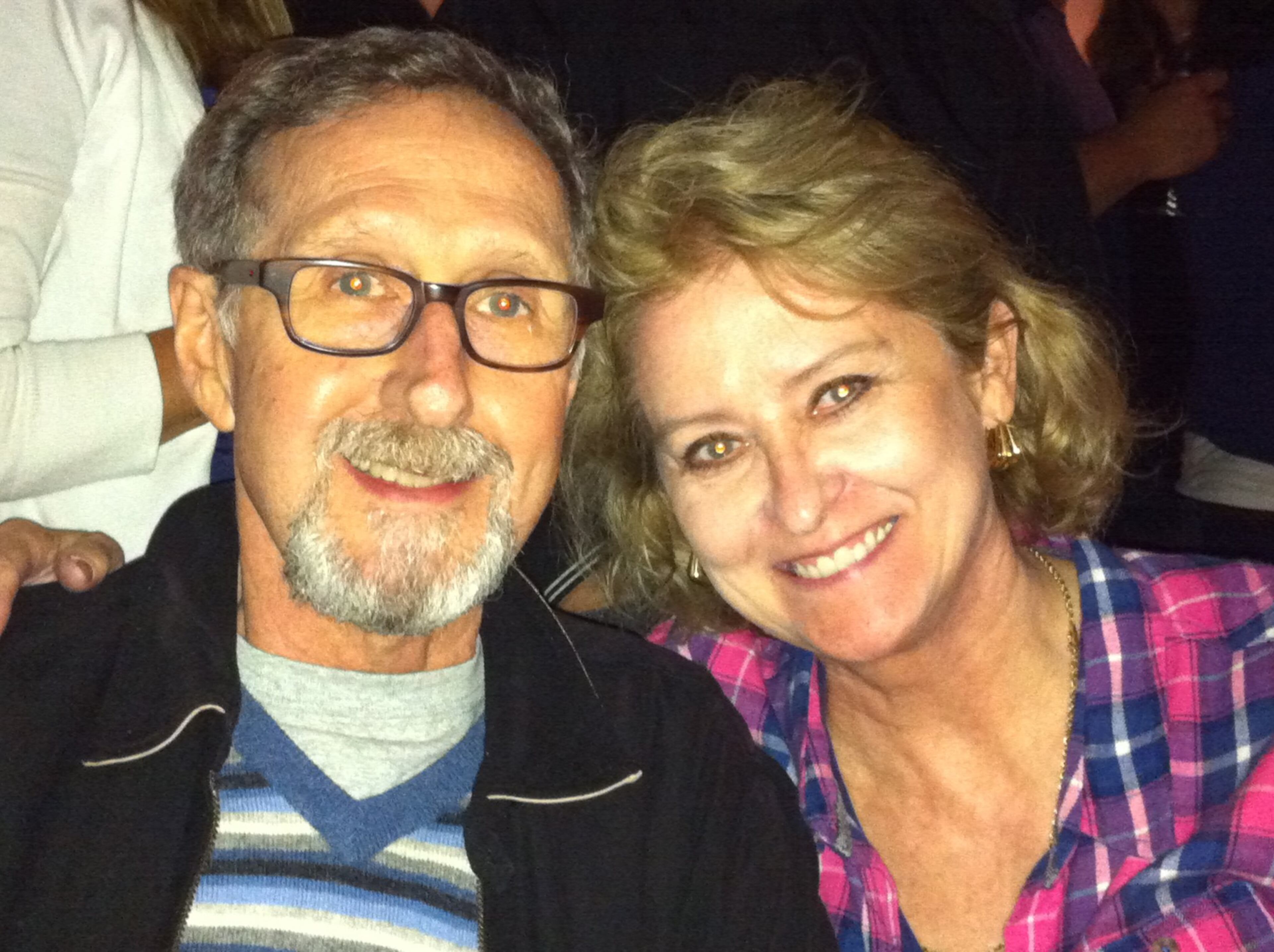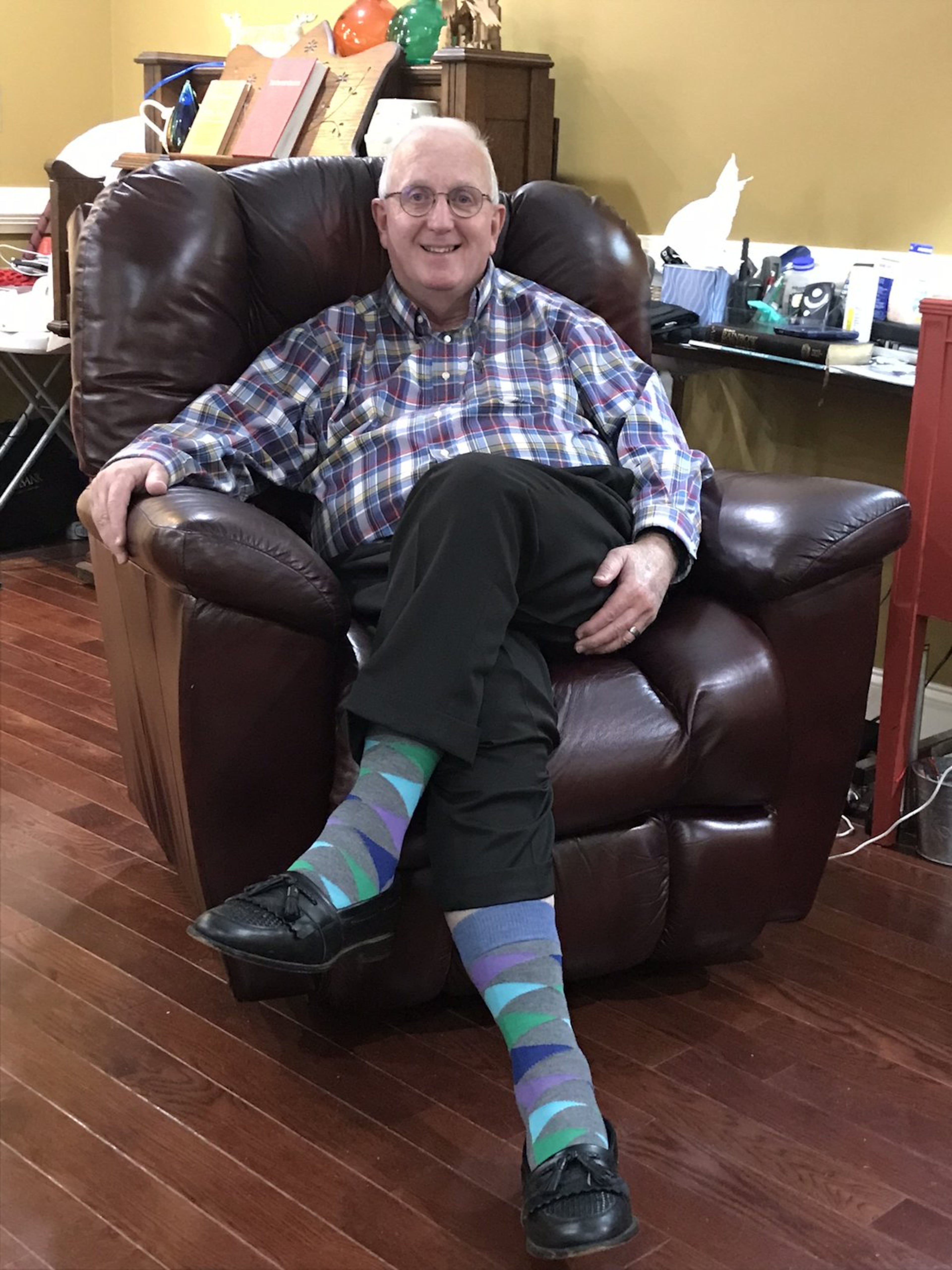What is Lewy body dementia?

When CNN founder Ted Turner made the bombshell announcement on “CBS Sunday Morning” in September that he had Lewy body dementia, the general reaction was: “What’s Lewy body dementia?”
Unlike the most common type of dementia, Alzheimer’s, LBD (as it’s commonly called) is not particularly well-known and is often misdiagnosed by doctors in part because there is no simple test for it.

"It can look like other disorders," said Angela Taylor, director of programs for the Lilburn-based Lewy Body Dementia Association. "It can look like Alzheimer's in its early stages or other psychiatric disorders. It's tough to tease out if not all symptoms are present or if the doctor is not familiar enough."
She said many symptoms resemble Parkinson’s, and the disease often features persistent and recurring hallucinations.
Robert Bowles, a 71-year-old retired pharmacist from Thomaston, said at first, it seemed like he had Parkinson’s. “I’d stand up, take a few steps, pass out, sometimes lose consciousness,” he said. But when doctors gave him anti-psychotic drugs, he would go catatonic.
It took 18 months and a battery of tests and doctors to come to the conclusion he had LBD. His mindset quickly went dark. “I thought I was issued a death sentence,” Bowles said. “I struggled for almost a year feeling hopeless. I didn’t see a path forward. I had to decide whether I wanted to live or die.”
At 1 a.m. one morning, he asked God for guidance because he felt like he was unduly making his family suffer. “God spoke to me,” Bowles said. “He said, ‘I’m not through with you. Just as you loved, cared for, educated and encouraged patients at the pharmacy, you now have a mission.’”
So Bowles began sharing about the disease at public forums and conferences. He did 20 events alone last year. Dr. William Hu, his doctor and an Emory neurologist who studies dementia, calls Bowles a “one-man crusader to get the word out.”
A low-profile disease
Taylor said there needs to be more advocates like Bowles because there is a broad lack of awareness of LBD despite the fact it impacts at least 1.4 million Americans in total, based on her group’s estimates. It’s the second most common type of dementia behind Alzheimer’s, which affects an estimated 5.7 million people.
On LexisNexis, which tracks a broad range of news sources, the phrase “Lewy body dementia” was mentioned 1,758 times in news stories in 2018. Yet just from Dec. 22, 2018, to Jan. 2, 2019, in comparison, “Alzheimer’s disease” was referenced 1,705 times.
There are more than 200 nonprofit groups that include "Alzheimer's" in their name on Charity Navigator. There are just two for Lewy body, including the Lilburn group, which raised $1.6 million in funds in 2017, according to its 990 filing with the federal government. In comparison, the Alzheimer's Association brought in more than $326 million in 2016, according to its most recent 990.
Lewy body dementia is named after German neurologist Dr. Friedrich Lewy, who discovered the abnormal proteins in 1912. LBD received a boost of public awareness after comic and actor Robin Williams, who had an especially aggressive form of the disease, took his own life in 2014 at age 63. Casey Kasem, the radio DJ known for hosting "American Top 40," died of LBD the same year at age 82. And former Georgia Gov. Zell Miller, who passed last year at age 86, also suffered from LBD.

Turner, in the CBS interview, downplayed his diagnosis of Lewy body dementia in a way that infuriated those familiar with the disease.
“It’s a mild case of what people have as Alzheimer’s,” Turner told Ted Koppel. “It’s similar to that. But not nearly as bad. Alzheimer’s is fatal.”
Hu, a 42-year-old neurologist at the Emory Clinic who has researched dementia for the past decade, said Turner’s interpretation is not uncommon. “I think everybody has such a fear of Alzheimer’s disease now that when they hear it’s not Alzheimer’s disease, they feel a sense of relief,” he said.
Unfortunately, Lewy body disease is just as fatal as Alzheimer’s, and some of its most common symptoms are worse, especially the potential psychotic episodes.
Meg Girouard, a teacher in Sagamore Beach, Massachusetts, said her father, Anthony Arena, began having hallucinations a few years ago. He’d see people and animals that weren’t there. “He woke us up at 5 a.m. and insisted the house was on fire,” she said. “He felt like those things were real.”
Then he got paranoid, followed by bouts of aggression. One time, he insisted on driving a boat, ran over a mooring ball and messed up the propeller. “He got mad at me and basically beat me up,” she said. “That was the last straw. We had to put him in a memory care facility.”
Moving him to the facility has been beneficial, Girouard said. Her father gets social interaction, a nutritional diet and medical supervision. He has structure and is no longer aggressive.
“If we brought him back home, he probably wouldn’t last very long,” Girouard said. “He’d run off. He was running away from us. We’d call the police and he wouldn’t get in the car.”

A journey toward a diagnosis
Finding ways to alleviate or reverse any type of dementia has been elusive. The last time the FDA approved a drug to treat Alzheimer’s was 2003. LBD faces its own special challenges, Hu said.
Hu compares a LBD diagnosis to the story about five blind monks feeling an elephant. Each specialist studies a different part of the disease, making it difficult to see the big picture. “You rarely find two people with exactly the same set of symptoms,” Hu said.
While Alzheimer’s typically attacks cognitive function first, he said Lewy body isn’t consistent. It may start with vision issues or hallucinations. It’s not atypical for a patient of his to see multiple specialists before coming to him.
Sidny Hieronymus, 70, of Sandy Springs said her husband, Jim — a kind, gentle man who worked in insurance — first began exhibiting a common early symptom around 2010: He’d begin “acting out” his dreams, moving his arms and legs. She’d have to wrap her arms around him to calm him down.

By 2014, he was told he had vertigo. Soon, he was taking frequent naps and had difficulty paying bills and preparing dinner. Doctors told him he probably had Alzheimer’s.
Over time, Jim no longer wanted to leave the house without her. With his neurological issues, his movements became jerky. He fell a lot.
“He was frustrated, but calmly frustrated,” she said. “He was also depressed. He would just sit and watch the news.”
In early 2017, Jim started having hallucinations. Soon, he couldn’t read. And later in the year, he could no longer speak clearly. Sidny, who said she loved her husband deeply, took care of him as long as she could until he needed round-the-clock care.
By then, Sidny thought he was suffering from LBD, not Alzheimer’s. The Integrated Memory Care Clinic at Emory Healthcare did tests on Jim in late 2016, and by February, they confirmed her suspicions: it was LBD.
By the fall of 2017, she reluctantly placed her husband in a memory care facility, where he spent his final nine months. “That broke my heart,” she said. “I visited him every day, but it was like a kick in the gut. He’d be in his wheelchair, and when he saw me, he’d try to stand up and walk to me with a big smile.”
During visits, she’d sit him by the window and play him jazz music by John Coltrane off Pandora. (He was a drummer back in the day.)
“I was always striving for him to be at ease,” she said.
For better or worse, he was aware of what was going on until the end, something that is not necessarily the case with Alzheimer’s.
“It’s a terribly cruel disease,” Sidny said, “because there is that awareness.”
Jim passed away last June at age 74. They had been married 38 years.

Coping while seeking answers
Currently, there are only a handful of medicines to help folks with LBD, Hu said. His patient Bowles takes just two. “We are focusing on improving general brain health whatever the cause of the disease. It’s about exercise. It’s about reducing stress. It’s about having a purpose in life. It’s about social and cognitive interactions. These in clinical trials have proven to improve brain health.”
Bowles, now six years since diagnosis, can still walk OK and speak at functions about the disease without too many complications. He eats out three or four times a week, shops at Walmart and goes to church.
But new symptoms pop up every so often. He is now super-sensitive to loud noises and wears earplugs. Sometimes, when his brain tells his legs to move forward, they go backward or to the left.
He is planning to cut back on his speech schedule this year. It takes a lot out of him now. “Brain gets tired,” he said.
“Body, too,” his 68-year-old wife, Judy, added.
Judy is his rock, but they are aware there may be a day she won’t be able to take care of him. “We have visited 10 assisted living homes just to be prepared,” he said.
As awareness of LBD grows, there is more money going into dementia research, said Dr. Rob Riesenberg, who founded the Atlanta Center for Medical Research in 1982. Pharmaceutical companies hire his company to hold clinical trials on different issues such as depression, anxiety, schizophrenia and ADHD. He has eight trials related to dementia going on right now, two connected with Lewy body disease.
He said getting volunteers for Lewy body trials has been challenging. “A volunteer has to be a giving person,” he said. “They might receive a placebo and not even receive the drug.”
Riesenberg said dementia research is still in its relative infancy.
No one has even come up with a test to identify Lewy body, much less a cure for it. They’ve tried nasal and gut biopsies to no avail, Hu said.
But Hu is confident within 10 years there will be an objective way to diagnose people with different types of neurological disease.
And Bowles has one simple mission: change people’s perceptions of dementia. “People tend to think about late-stage dementia,” he said. “They imagine once they’re diagnosed, it’s over. It’s not. It will take people like me living with dementia who will change the culture of dementia.”
UNDERSTANDING THE DISEASE
What is Lewy body dementia (LBD)?
It’s a chronic, progressive brain disorder where abnormal protein deposits called Lewy bodies build up in brain cells to impact behavior, cognition, movement and sleep. Where it strikes first varies.
What’s the difference between Parkinson’s disease and LBD?
Parkinson’s disease and LBD share many features. People with Parkinson’s disease typically exhibit motor-related symptoms first, and dementia can occur later in the disease. People with LBD experience memory or behavioral changes early on, while motor symptoms can emerge early, late, or not at all.
What’s the difference between Lewy body dementia and Alzheimer’s disease?
Alzheimer’s disease involves buildup of plaques and tangles in the brain that are different from Lewy bodies.
With Alzheimer’s, memory tends to decline more consistently over time. With LBD, memory loss can fluctuate, and people often experience other symptoms such as visual hallucinations and acting-out of dreams during sleep. Often it can be difficult to differentiate between Alzheimer’s disease and LBD based on symptoms alone, and researchers are developing tests to identify Lewy bodies comparable to what is available for Alzheimer’s.
What can be done at this point once someone is diagnosed?
There is no medicine yet that can cure LBD, but some medications may improve the symptoms when used correctly. Because LBD patients can have severe side effects to common prescription and over-the-counter medications, it is important to consider the risks and benefits before starting a new medication.
What are the survival rates between LBD and Alzheimer’s?
For more information: Lewy Body Dementia Association, 404-418-7396, lbda.org



